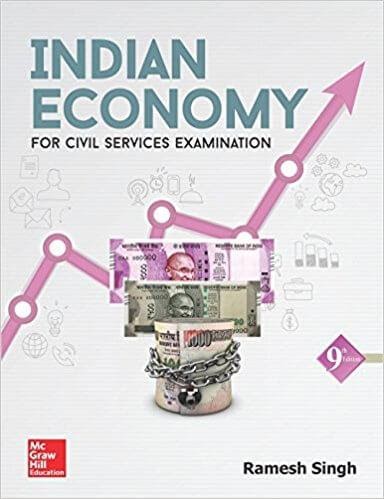(Getting Started) Preparing for Economics Optional – Aishwarya Sheoran's Strategy (AIR 93)
(Getting Started) Preparing for Economics Optional – Aishwarya Sheoran's Strategy (AIR 93)
Aishwarya Sheoran’s story is what a may be a film story is made of. This Miss India 2016 finalist has taken the news cycle by storm by securing an all India rank of 93 in the UPSC Civil Services examination 2019. She is a graduate of economics and thus, chose Economics as her optional. With that, she secured a rank that has now cemented her to getting entry into the coveted Indian Administrative Services (IAS).

Aishwarya Sheoran, AIR 93, UPSC CSE 2019
Who Should Pick Up Economics?
Economics is a technical subject and one must have some inclination towards it before taking it up. If one is a student of economics then this is the best possible subject for them. Even if they are not, anyone who is willing to spend time understanding the nitty-gritty of the field and finds themselves intrigued with how economics works can pick it up. It is not hard; it just needs dedication.
Why Should One Pick Economics?
Economics is a very scoring subject. From the UPSC Civil Services examination perspective, it is also a major chunk of the General Studies Paper III syllabus. The syllabus for GS-III and the syllabus for Economics Optional overlap to a great extent. Not to mention portions of economics such as Agriculture and the Economic Survey are a major part of the General Studies as well as Preliminary syllabus. Economics is also very to the point and requires the use of crisp facts and figures. The sources are limited as it is a newer behavioral science and has not many established authors. Thus, it is much more manageable.
Economics Optional Paper I and Paper II:
What to Cover and How?
Paper-I is the more technical out of the two. It covers macro-economics, microeconomics, money, and finance, banking, and growth and development. It covers a lot of mathematical aspects of economics. An economic background helps in this paper. However, if you do not have a background, take your time when studying this paper.
Paper-II is mostly about Indian Economic History. It is related to GS-III. Aishwarya herself has studied this paper from her own graduation notes and the little that was left, she searched them up on the internet and made fresh notes.
Topicwise Booklist and Other Sources
Here is Aishwarya’s topic-wise booklist –
Economics Optional Paper-I
- Micro Economics – H.L. Ahuja
- Macro Economics – H.L. Ahuja, Froyen
- Money and Finance – H.L. Ahuja
- Public Finance – H.L Bhatia
- International Economics – Salvatore
- Growth and Development – Online Sources, H.L Ahuja
- WTO, Environmental Economics – Online Sources
Economics Optional Paper-II
- mrunal study notes
- Aishwarya used her graduation notes; she suggests you take the books mentioned by other toppers
Do not ignore the Budget and the Economic survey.
Try and make notes from the budget speech directly to ensure you don’t miss details. This also helps in developing a better understanding. As for the Economic survey, it is usually a 2-part compilation with each part having around 500 pages. Aishwarya herself had reduced it to 4 pages of notes which she studied right before her interviews and could answer related questions on it.
How Much Time to Give to Economics as an Optional?
Aishwarya has given it 3 months – August, September, and October 2018. She made notes during this time and kept revising these notes regularly. It is best to complete the optional before the preliminary examination as there is not much time between preliminary and mains exams. She used to spend roughly 5 hours every day during this time for her optional. But she never stopped her General Studies preparation. Even when she was wholly concentrated on her optional, she still kept studying her current affairs related to General Studies for 2 to 3 hours every day.
Answer Writing Practice
Aishwarya joined a test series in Delhi. She had taken 14 to 15 tests for optional. It helped her ensure she was finishing her papers on time and also to better the quality of her writing. Aishwarya suggests starting with the compulsory questions. In there, she started with 20 markers and then complete 15 markers. But she advises you to do what works for you.
For Economics, keywords are very important. Examiners mark these points first and then evaluate the rest of the answer. Aishwarya recommends picking these keywords from the Economic Survey Report, the Budget Speech, and the NITI Aayog’s ‘India at 75’ report. The goal is to complete your optional on time, and that in itself is half the battle won.
© IASEXAMPORTAL
CLICK HERE TO DOWNLOAD UPSC TOPPERS NOTES



